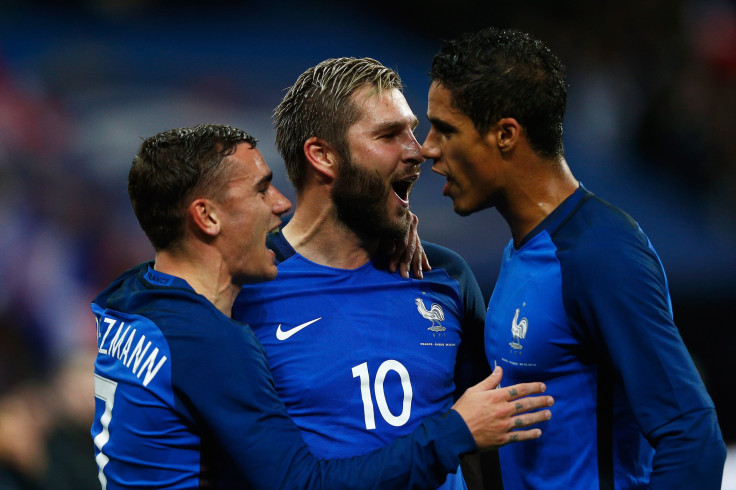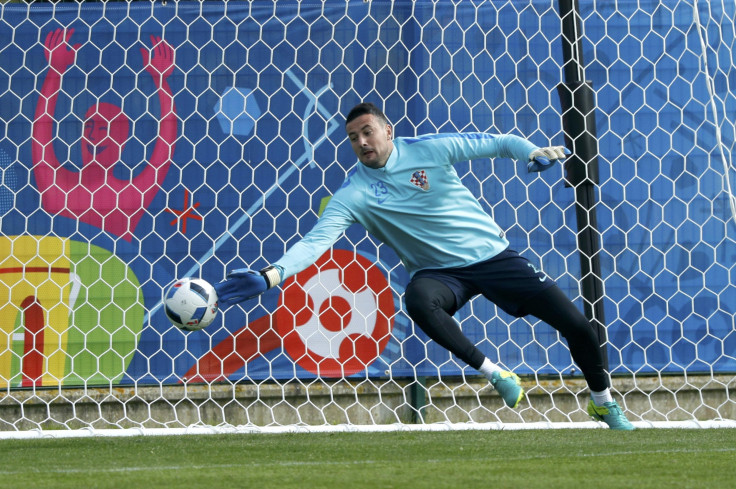Euro 2016 Betting Odds: With Record Number Of Bets, Oddsmakers Rooting For France, Against England?

The European Championship is bigger than ever in 2016, and along with the largest field in the soccer tournament’s history comes a record number of wagers. Eight teams have been added to the traditional 16-team field, creating the opportunity for millions more to be won or lost on the outcome of upcoming matches.
Approximately 500 million pounds ($727 million) are expected to be wagered on Euro 2016 in the bookmaking industry, according to William Hill, one of the U.K.’s top sportsbooks.
“24 teams and home-nation interest will boost the coffers in a way that the Euros have never done before,” said William Hill spokesman Joe Crilly.
France enters Euro 2016 as the favorite to win the championship with 3-1 betting odds, followed by Germany (4-1) and Spain (5-1). England is favored to win Group B — the teams are separated into six groups of four to determine the 16-team knockout stage — but the country, with 8-1 odds, is a relative long shot to win the entire tournament compared to the favorites.
With such favorable odds, 16 percent of the public money has been placed on England. That means a championship for manager Roy Hodgson’s squad could spell trouble for bookmakers.
“tournasment betting interest will be huge. In an ideal world they will make it into the semis or final and then fall at the final hurdle,” Crilly said.
The betting industry could lose an estimated 50 million pounds ($72.65 million) if England wins the championship. That would make 2016 an even more difficult year, following the bath that sportsbooks took because of Leicester City’s historic Premier League championship.
Losses suffered by bookmakers are often exaggerated, but that wasn’t the case when Leicester City won the title in May. When the Premier League season started in August, William Hill offered 5,000-1 championship odds for Leicester City, and the sportsbook claims the club cost the betting industry 10 million pounds ($14.5 million). Other estimates suggest the betting public won even more money as a result of the monumental upset.
“This is 100 percent genuine. Bookmakers are screaming,” top U.K. poker player and former bookmaker Neil Channing told casino.org. “And they have profit warnings and whatever, and this has hurt them.”

With only 7 percent of the public money on France, which offers bettors the least value of any team, bookmakers would be best served if favorites were to win the championship. A win for perennial dark horse Belgium could be costly, as well, considering 13 percent of public money is on the team, which has 11-1 odds.
Fourteen percent of the public money is on Germany and its 4-1 odds. Eight percent of public money is on Italy, which has 18-1 odds.
The threat of losing millions isn’t the same for American bookmakers, who will receive considerably less action on the European Championship.
“Russia at 80-1 or Northern Ireland at 250-1 would be big losers for the book but not comparable to the biggest upset, maybe in betting history,” Kevin Bradley, Bovada.lv Sportsbook Manager, told International Business Times in an email.
Bovada doesn’t give out exact financials on the amount the public is wagering, though the betting website said the bets placed on Euro 2016 will reach seven figures. The total is expected to be about 20 percent of what the website took in during the entirety of March Madness. The college basketball tournament was responsible for an estimated $2 billion worth of legal bets at American sportsbooks a year ago.
"Nothing compares to the World Cup in terms of soccer, but the growing popularity in the U.S. along with many bettors cheering and betting on their countries of origin or background puts it around one-third of what we see on World Cup,” Bradley said. “Looking at early money, we may end up double what we took in 2012.”
© Copyright IBTimes 2024. All rights reserved.












